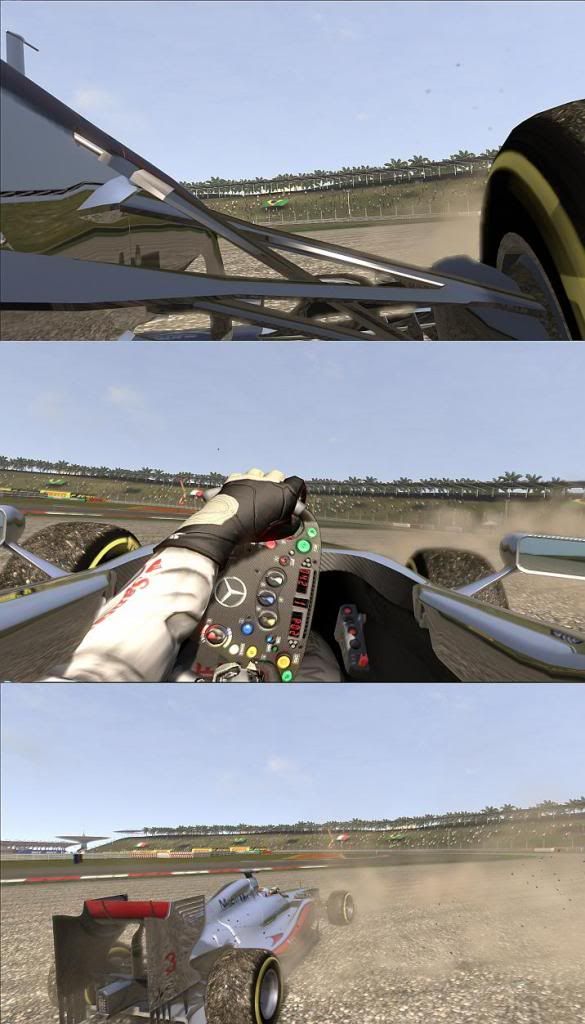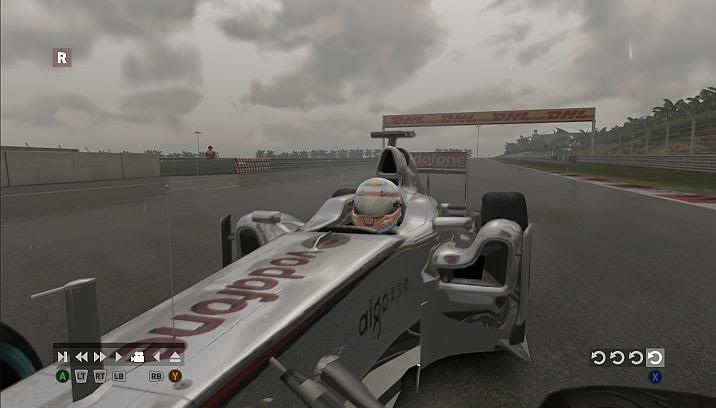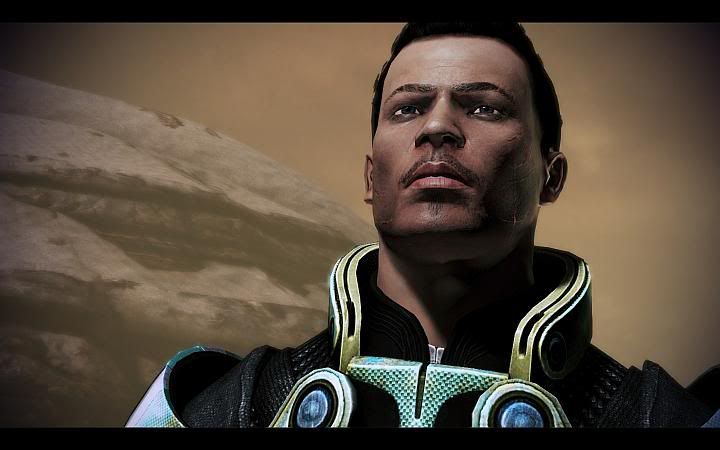Since Gamespot also is not participating in the worldwide Internet strike vs SOPA today, I can as well go online and write my impressions on the Rich-Gallup-but-not-anymore-Rich-Gallup video game demo which hit the web yesterday. My impressions are from the PC Version of the game. It runs fine, though there are some minor glitches you will maybe come across. Some sound files missing, some texture glitches (NVIDIA card), the flute the women in the tavern is playing is invisible (or, she is just playing AIR FLUTE - who knows, right?). In battles, there are moments when the game is freezing before you see the strike animation - might be a temporary driver thing - no biggie. Otherwise the technology is fine - up to modern standards, with nice effects. On a PC you always have to tell yourself, this is a cross-platform game, so it cannot compete with the likes of a Witcher 2. The art style is maybe not everyone's cup of ale. I like it a lot. It reminds me strikingly of the paintings of the legendary Brothers Hildebrandt, who are well known to the Fantasy fans of the 1970s and 80s. We marveled starring at the work they did for the early Lord of the Rings calenders, when there was no Peter Jackson, but only them - Greg & Tim - and some guy from Brooklyn, NY called Frank Frazetta. People back then have been reading books, like paperback-editions. They bought all the Fantasy and Science Fiction books that were released every single month (another Terry Brooks "Something" of Shannara, another Magazine of Fantasy & Science Fiction ...); we sniffed the aroma of the Ballantine books and others. We didn't have Internet - isn't that obvious? Ah, glorious times! The world is very, v e r y colorful - almost as if armies of dwarfs or gnomes ran around this Faelands and splashed their buckets of paint all over the place for the last six years of game development? But I love it, because it is well crafted and well composed. You can see, somebody with art knowledge made sure that the foreground and background layers always had the right color temperature and the colors you see are balanced. The world looks still like your grandfathers idea of a acid Fantasy Island - what, Ken Rolston? I didn't mention you, or did I? The game mechanics of Kingdoms of "Donuts" remind me early on of the Legacy of Kain: Soul Reaver PC versions, which was shocking for a second or two, because the game is 10 years old and the mechanics felt too familiar. But this neuro-flashback did not last long. The tutorial level gives you all the step-by-step input you need to learn the basic mechanics of the game. So far nothing spectacular or out of the ordinary. I was playing the first couple minutes while still waiting for the "amazing, revolutionary combat system" I felt to have been promised. But a couple minutes later, you are introduced to the extended fight mechanics and seeing the tutorial videos within your option interface, you can see how combos will play a role later on. The fighting is sophisticated as promised. Story: to me, it makes all the difference, if I want to keep playing a RPG game or not. Good RPG games give you an addictive dose of fight-loot-fight-loot rhythm. You don't necessarily need a good story or convincing world. Whoever played the monochrome ULTIMA, or Wizardry ... or any early video game for that matter, made all the stories up for him-/herself in their heads anyway? But this game is introducing it's lore in a convincing way, without overwhelming me or boring me by repeating the same things again and again - which the NPCs do, but in a tolerable way. I get to learn about the factions, about the overall conflict, bit by bit. And I meet again with some very familiar themes, I know from The Elder Scrolls games: Roman Legions and Catholic Monasteries. Again, Ken Rolston - what's up with that? Are YOU the sole mastermind behind this? Is this your revenge for having to learn Latin at school, like me? I do know, the story was written by R.A. Salvatore (just like I know, the art was not made by the Brothers Hildebrandt, but by Todd McFarlane, who btw, admits stealing from the great Frazetta ... and other sources - but that's how all artists work. Especially in video games and fantasy there is NO SINGLE concept artist who has not had his Frank Frazetta years behind him (or her). I know, I quote myself a lot. Sorry. Back to the story. The characters seem to be as colorful as the landscape. The voice acting in this game is excellent! It helps a lot to keep you immersed (katching! - I used a reviewer fail-word). From the very first characters you meet, you just have to obey their demands. These are clearly theatrically trained professional actors, who make a living by making you listen to them. The Victorian English and Scottish accents give the characters another layer of depth (take notes, indie game apprentice!). Also the excellent music, especially French Horns are very formidable for story exposition. On this one, you just have to trust me - an old opera & Richard Wagner fan. After all those decades of dealing with elves and dwarfs, I had a Fantasy fatigue until very recently. But if it is presented like this, I am on board again. After the cave you finished the first part of the tutorial and see the wonders of an unpolluted world - it's called FANTASY for a reason (oh, and - ok, forget the corpses), you are out in the open and you have 45 minutes to play and do quests. The game allows you extra time when you pause or speak to a NPC. I found myself enjoying the flow of exploring, conversations, combat. At times I was reminded of the charm that bewitched me, when I played the first Star Wars Knights of the Old Republic. [Small game play tip: the water nearby is not only looking good, it is quite refreshing - you might want to take a swim and look around]. If you are online and logged in to your EA account, you get to keep some unlocked items from your demo playthrough. If you accept to participate in some root-kit level packet-trafficking ("share your data with our nice folks at EA"), you get even more things, you can use later on in the full version of the game. Throughout the demo you are introduced further to game play elements like Alchemy, Crafting, (socket-items!!), etc, etc ... all promising elements of a fully fledged RPG. Not to stretch this blog post any further - the demo does everything to make you want to buy and play the full game. I don't know, why I had to write this down. I don't know neither, why I suddenly think of Bioware and Dragon Age 2. It is almost unfair. They made one sucky game after all those successful years, and yet, it is all I can think of. Forget it.



 Linux Version
Linux Version Cockpit view - what else is there? I am stuck in Dirt 2. I am stuck in an early part of the game. To be completely honest - I am stuck in the 3rd race. You start the game on a London track. It introduces you to what is coming. You then can choose between the Baja race which is a Dirt race on sand with a truck, or you can go to the Rally Race in Croatia - the legacy of Collin McRae. And that's where I am. I feel the anticipation, when I am in my trailer, the three dimensional *lobby* from where I can chose different game options (Multiplayer, Leaderboards, Race). I see the World map with the different location and race options. I see the red Rally emblem down there in the Meditereanean, South Europe. I chose *Hardcore* and *Damage: on*, not because I am a 'hardcore gamer' - just because I want the purity of a real challenge. I want to be good in this game, because this game 'lets' me. It gives me the feeling that I can become better, that I can improve. I want to race, like it's for real. Like it means something. Watching the Rally racers occasionally on a Sport TV channel, the insanity of real drivers, driving in real cars at insane speeds on a narrow track towards a wall or a rock, towards unknown turns, that only appear first as a promise through the voice of your co-driver. "40 pin left bumb". The trust a real driver must have to execute on such a promise, on the illusion of a thing to happen. Apocalyptic by it's very nature. The promise of the coming. You take the turn in blind faith... and there it is. So I adjust the settings again and again, start the race - again and again. Trying to get the perfect line, holding the wheel steady, breaking at the very last moment, powersliding like every inch counts, every millisecond counts... and I fail at some point during the 2 minutes the race takes. At some point my concentration weakens or I freeze - trying too hard. And then, I start all over again. One more try.
Cockpit view - what else is there? I am stuck in Dirt 2. I am stuck in an early part of the game. To be completely honest - I am stuck in the 3rd race. You start the game on a London track. It introduces you to what is coming. You then can choose between the Baja race which is a Dirt race on sand with a truck, or you can go to the Rally Race in Croatia - the legacy of Collin McRae. And that's where I am. I feel the anticipation, when I am in my trailer, the three dimensional *lobby* from where I can chose different game options (Multiplayer, Leaderboards, Race). I see the World map with the different location and race options. I see the red Rally emblem down there in the Meditereanean, South Europe. I chose *Hardcore* and *Damage: on*, not because I am a 'hardcore gamer' - just because I want the purity of a real challenge. I want to be good in this game, because this game 'lets' me. It gives me the feeling that I can become better, that I can improve. I want to race, like it's for real. Like it means something. Watching the Rally racers occasionally on a Sport TV channel, the insanity of real drivers, driving in real cars at insane speeds on a narrow track towards a wall or a rock, towards unknown turns, that only appear first as a promise through the voice of your co-driver. "40 pin left bumb". The trust a real driver must have to execute on such a promise, on the illusion of a thing to happen. Apocalyptic by it's very nature. The promise of the coming. You take the turn in blind faith... and there it is. So I adjust the settings again and again, start the race - again and again. Trying to get the perfect line, holding the wheel steady, breaking at the very last moment, powersliding like every inch counts, every millisecond counts... and I fail at some point during the 2 minutes the race takes. At some point my concentration weakens or I freeze - trying too hard. And then, I start all over again. One more try.  F1 2010 Bridgestone tires - no KERS, no DRS, no *PIRELLI* yet And then there is this other game: F1 Formula 1 2010 by Codemasters Birmingham - the first 'real' F1 game in many years for PC. I haven't played any F1 racing game since the legendaryGeoff Crammond games- and even 'back in the days, I didn't really play racing games (nor any other games on PC nor any consoles). I mostly played the free demos and that was that. Yet, I liked to watch Formula One from early on. I watched Niki Lauda, Ayrton Senna without being a real racing fan. Over the years I made myself commit to becoming a regular F1 TV audience member. I would sit on a Saturday and Sunday (unless friends/family demanded my presence) and watch the races. Becoming familiar with the drivers, the companies, the sponsors, the locations. Still, I don't know nothing about Formula 1 really...until I started playing this game.During racing week I fire up this game and choose the track the real F1 circus is visiting that week. I play alongside the real Formula 1 season. But instead playing the Career Mode in the game, or Multiplayer, I just enter the Free Trial mode and race alone - against my own time. It usually all goes very bad. I cannot finish ONE single round without bumping into something or sliding off the track, invalidating my turn = the timer stops and I have to start from the beginning or finish the turn and go over the start/finish line to restart and try again. This can be fun the first time, the second maybe, the third - if you are really into it. It can get pretty tough after that, when you try again and again and fail to finish a single turn. Yet, this game is rewarding. It seems mysterious and hard to explain to someone who does not play video games, but chasing the time, trying to be 'better' at the game, trying to 'beat it', or - equally - going for the 'perfect score' - all these behavioral patterns, the psychological traps we let ourselves fall into (with a little help by the game developers and designers) - work remarkably well on our psyche? We 'want' to get better at playing the game. We want to accomplish the given task at hand. And the good games allow you to become better. They reward you not by cheating, so you can 'win' in the last second, or adjust to your bad play and let you shoot better (as Cliff Bleszinski did admit at his GCD 2011 talk about God of War 2). The really good games give you a chance to learn, to adopt, to improve.I usually hate ALL games that have repetitive gameplay. Everytime I see a "Action Game", FPS, RPG - or any game really - wants me to be like a Pavlovian dog, I resist the idea and stop playing. conditioning isn't my forte. I don't play to 'catch them all', I don't play for bragging rights, trophies or Achievement Points. I see the psycho-traps and game mechanics behind it. I see the game developers intention and I do what every reasonable and half-witted human should do: I stop. Random and repetitive is not why I 'install' games on my PC. But then there is a game like this. I surrender to this kind of game, that does the same thing. Why? I went so far to buy a Gamepad for PC so I can have analog control for my driving games. I am not going so far to buy a racing wheel, but who knows? Everytime I see a 3-monitor setup and somebody sitting in a F1-car chassis I say to myself: "I can build something like this easily". It's gonna be expensive, but it's possible - there must be a Make-magazine issue explaining how to build a hydraulic DirectInput chair. This weekend it's the Grand Prix of Europe in Valencia. A tough last corner coming in with high speed. It's almost impossible to drive the last turn with wets, if you are a rookie like me (all assists off). Still I have to try it one more time. So, if you please excuse me... (...oh, and I am really sorry for wasting your time. Who the hell reads such things anyways? :)
F1 2010 Bridgestone tires - no KERS, no DRS, no *PIRELLI* yet And then there is this other game: F1 Formula 1 2010 by Codemasters Birmingham - the first 'real' F1 game in many years for PC. I haven't played any F1 racing game since the legendaryGeoff Crammond games- and even 'back in the days, I didn't really play racing games (nor any other games on PC nor any consoles). I mostly played the free demos and that was that. Yet, I liked to watch Formula One from early on. I watched Niki Lauda, Ayrton Senna without being a real racing fan. Over the years I made myself commit to becoming a regular F1 TV audience member. I would sit on a Saturday and Sunday (unless friends/family demanded my presence) and watch the races. Becoming familiar with the drivers, the companies, the sponsors, the locations. Still, I don't know nothing about Formula 1 really...until I started playing this game.During racing week I fire up this game and choose the track the real F1 circus is visiting that week. I play alongside the real Formula 1 season. But instead playing the Career Mode in the game, or Multiplayer, I just enter the Free Trial mode and race alone - against my own time. It usually all goes very bad. I cannot finish ONE single round without bumping into something or sliding off the track, invalidating my turn = the timer stops and I have to start from the beginning or finish the turn and go over the start/finish line to restart and try again. This can be fun the first time, the second maybe, the third - if you are really into it. It can get pretty tough after that, when you try again and again and fail to finish a single turn. Yet, this game is rewarding. It seems mysterious and hard to explain to someone who does not play video games, but chasing the time, trying to be 'better' at the game, trying to 'beat it', or - equally - going for the 'perfect score' - all these behavioral patterns, the psychological traps we let ourselves fall into (with a little help by the game developers and designers) - work remarkably well on our psyche? We 'want' to get better at playing the game. We want to accomplish the given task at hand. And the good games allow you to become better. They reward you not by cheating, so you can 'win' in the last second, or adjust to your bad play and let you shoot better (as Cliff Bleszinski did admit at his GCD 2011 talk about God of War 2). The really good games give you a chance to learn, to adopt, to improve.I usually hate ALL games that have repetitive gameplay. Everytime I see a "Action Game", FPS, RPG - or any game really - wants me to be like a Pavlovian dog, I resist the idea and stop playing. conditioning isn't my forte. I don't play to 'catch them all', I don't play for bragging rights, trophies or Achievement Points. I see the psycho-traps and game mechanics behind it. I see the game developers intention and I do what every reasonable and half-witted human should do: I stop. Random and repetitive is not why I 'install' games on my PC. But then there is a game like this. I surrender to this kind of game, that does the same thing. Why? I went so far to buy a Gamepad for PC so I can have analog control for my driving games. I am not going so far to buy a racing wheel, but who knows? Everytime I see a 3-monitor setup and somebody sitting in a F1-car chassis I say to myself: "I can build something like this easily". It's gonna be expensive, but it's possible - there must be a Make-magazine issue explaining how to build a hydraulic DirectInput chair. This weekend it's the Grand Prix of Europe in Valencia. A tough last corner coming in with high speed. It's almost impossible to drive the last turn with wets, if you are a rookie like me (all assists off). Still I have to try it one more time. So, if you please excuse me... (...oh, and I am really sorry for wasting your time. Who the hell reads such things anyways? :) 
Log in to comment